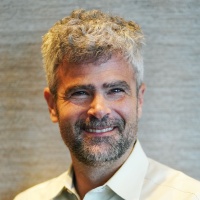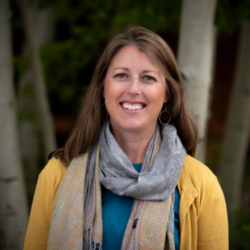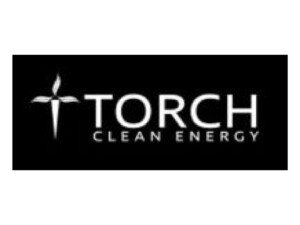Join us as we:
- Suggest measures to drive a steep reduction in emissions from the gas utility.
- Demonstrate how Xcel can meet Colorado’s targets in a way that delivers the most emissions reductions per ratepayer dollar.
- Discuss the public health and community benefits of clean heat and the costs of delaying a rapid transition.
Panelists

Dr. Asa Hopkins
Vice President, Synapse Energy Economics, Inc.
Asa Hopkins, PhD, is an expert in the development and analysis of public policy and regulation regarding energy and greenhouse gas emissions, including cost-benefit analysis, stakeholder engagement, state energy strategy and planning, and utility planning. He has provided analysis and testimony supporting decision-makers in both legislative and regulatory contexts, including state utility regulation and state and federal rulemaking. Since arriving at Synapse in 2017, Dr. Hopkins has focused on utility and demand-side issues, including demand response in Quebec, rate design in Massachusetts, and utility performance metrics in Puerto Rico, as well as multi-state analysis of strategic end-use electrification across the Northeast region.

Lorena Gonzalez
Communities and Justice Campaign Manager, Conservation Colorado
Originally from the south side of Chicago, Illinois, Lorena started her work with Conservation Colorado in 2021. Before joining the team, Lorena worked as a co-chair of the Southwest Environmental Alliance–a direct action, environmental justice group in her former Chicago neighborhood–and on the national media team at the Natural Resources Defense Council.

Meera Fickling
Senior Policy Advisor, Western Resource Advocates
As part of the clean energy team, Meera advocates for policies that reduce greenhouse gas emissions, achieve state-level climate goals, and accelerate a transition toward renewables, energy efficiency, and lower carbon fuels. Her particular focus is efficiency, gas systems, and decarbonization in Colorado buildings. In her role, Meera is called on to testify in legal proceedings, weigh in on actions being considered by Colorado’s legislature, and advocate for investments in cleaner energy sources.

Justin Brant
Utility Program Director, Southwest Energy Efficiency Project
Justin Brant is Utility Program Director at the Southwest Energy Efficiency Project (SWEEP), where he leads work at public utilities commissions around the Southwest advocating for stronger energy efficiency, demand management, rate design, and beneficial electrification. Justin works collaboratively with utilities and policymakers to implement best practice programs across the region, and leads much of SWEEP’s work around the gas transition and decarbonization of gas utilities.

Kiki Velez
Equitable Gas Transition Advocate, Natural Resources Defense Council
Kiki Velez focuses on the transition to clean electricity in buildings in California, working with stakeholders and policymakers to transform the state’s building stock in alignment with pressing climate and equity needs. Prior to joining NRDC, she outlined policies for an equitable gas transition with the California Building Decarbonization Coalition and Common Spark Consulting, and she analyzed efforts to ensure a just transition for Colorado coal workers and communities with the BlueGreen Alliance. She also served as a policy intern to Chair David Hochschild at the California Energy Commission, where she studied the indoor air quality impacts of gas use in homes. Velez holds a bachelor’s degree in atmosphere/energy engineering from Stanford University. She is based in NRDC’s San Francisco office.
Moderator

Stacy Tellinghuisen
Deputy Director of Policy Development, Western Resource Advocates
Stacy is the deputy director of policy development . In her role, she advances climate policies that support clean energy across the organization’s seven-state region and ensures there are equitable benefits for the region’s diverse residents. Using the most up-to-date data and cutting-edge research, Stacy collaborates closely with other state agencies, environmental organizations, consumer advocates, and industry representatives to identify solutions to the urgent climate crisis. She represents WRA in state regulatory commissions, developing analyses and testimony to advocate for policies that can achieve science-based climate goals. In addition, she works with partners to develop legislation to catalyze the transition to a low-carbon economy.
Additional Resources
- Full Report: A Path to Pollution-Free Buildings: Meeting Xcel’s 2030 Gas Decarbonization Goals
- Executive Summary: A Path to Pollution-Free Buildings
- Previous Webinar: Clean Heat: Imagining A Healthy, Efficient, and Equitable Future
- Blog: Top Five Ways to Fix High Gas Bills in the West
In 2021, Colorado passed a Clean Heat Standard, legislation requiring Colorado’s gas utilities to reduce their greenhouse gas emissions from distribution and combustion of fossil gas in buildings by 4% by 2025 and 22% by 2030, relative to 2015 levels. These goals are ambitious, requiring a sweeping transformation of the way that Coloradans heat their homes and businesses in just seven years.
A new report by Western Resource Advocates, the Southwest Energy Efficiency Project, and the Natural Resources Defense Council A Path to Pollution-Free Buildings: Meeting Xcel’s 2030 Gas Decarbonization Goals recommends measures to drive a steep reduction in emissions from the gas utility. Specifically, to achieve Xcel’s 2030 goal, the utility will need to incentivize households and businesses to rapidly increase adoption of efficient electric appliances – heat pumps and heat pump water heaters – and weatherize tens of thousands of homes and businesses. The report also recommends frontloading spending on robust workforce development and customer education programs and prioritizing low-income households in the transition.
THANK YOU TO WRA SPONSORS
Impact sponsor: FirstBank

Premier sponsors: Sol-Up, Vision Ridge Partners


Signature sponsors: SCARPA, SWEEP, Torch Clean Energy




